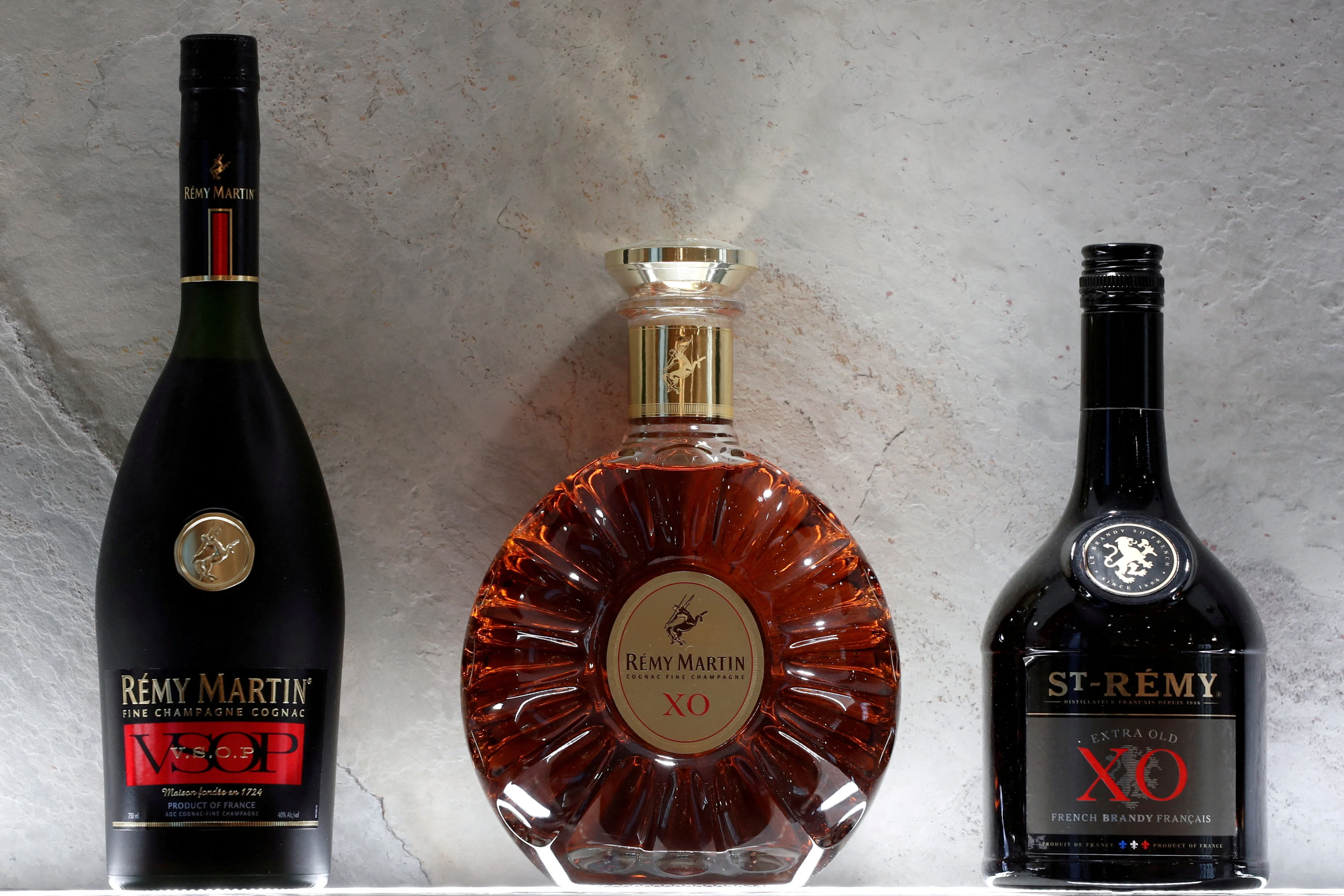By Xiaofei Xu
Beijing has extended an olive branch to French cognac producers by promising a “significant” tax refund if they cooperate with its anti-dumping investigation into European Union brandy sold in China, according to an industry source with knowledge of the matter.
Major brands Hennessy, Martell and Rémy Martin have been offered the terms, said the person, who spoke anonymously due to the sensitivity of the issue.
To qualify, producers must agree to Beijing’s demands, commit to a minimum selling price and refrain from dumping practices, the person said, adding that negotiations were ongoing but the refunded amount should be “pretty significant”.
Last October, Beijing imposed temporary anti-dumping duties on brandy and cognac imported from the EU in retaliation for the bloc’s tariffs on made-in-China electric vehicles.
The investigation into European cognac, mainly produced in France, will conclude on July 5. If no agreement is reached by then, the temporary tariffs of up to 39 per cent could become permanent.
The Bureau National Interprofessionnel du Cognac (BNIC) – France’s leading representative for the cognac industry – said both sides had negotiated a preliminary agreement to establish a minimum import price, pending approval from Chinese authorities.
“Everything is in the hands of the Chinese authorities. We will continue to support the industry and achieve the best possible situation between now and July 5,” a French Commerce Ministry spokesperson told the Post on Monday.
Most cognac producers are small owners… and are totally being strangled by this struggle
Marc-Antoine Jamet, secretary general of French luxury goods giant LVMH
Producers were cautiously optimistic that Beijing would approve the deal before the deadline, though broader trade disputes between China and the EU – in areas such as electric vehicles – have added to the uncertainty, the industry source said.
“There’s a lot of hope, [but] we also need to be cautious about the negotiations, because there’s a political dimension and politics is always a bit, well, it’s never definitive,” the person added.
In a statement published last week, the BNIC said national cognac exports to China had fallen by nearly 40 per cent so far this year due to the temporary tariffs.
Marc-Antoine Jamet, secretary general of French luxury goods giant LVMH, which owns Hennessy, criticised Beijing for linking the cognac negotiations to broader China-EU trade disputes.
Speaking at a China Europe International Business School (CEIBS) forum in Paris on Monday, he said the cognac-producing region does not wield much influence in Brussels.
“Most cognac producers are small owners who sell to traders … running fragile, difficult and small family farms and are totally being strangled by this struggle that is out of their hands,” Jamet said.
Small producers stand to lose the most if China and France cannot reach an agreement before July 5.
While major cognac producers such as Hennessy, Martell and Rémy Martin have all agreed to comply with China’s investigation and pay the legal fees required to benefit from the tax refund, most small producers have not, according to the source.
This makes them more vulnerable in the worst-case scenario, the person added.
Hennessy, Martell and Rémy Martin did not respond immediately to the Post’s request for comment.
“We’re one of the rare small businesses to have agreed to pay and to have agreed to collaborate,” the source said.
Most of the roughly 4,000 producers and traders in the cognac region declined to pay the fees and could face the full punitive tariffs if a deal is not reached, according to the source.
The whole procedure cost them between €15,000 (US$17,675) and €20,000 (US$23,567) in legal fees, the source said, with the major cognac producers paying much more.
“We gave up all our confidential information, our customers, our processes and all that to collaborate and get a tax refund. So normally, we should benefit from it,” the person said.
“The least we ask is that this be respected, that the promise be kept.”
